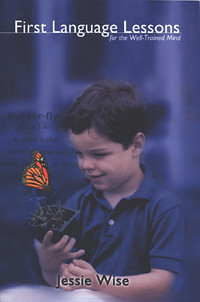August 28, 2007
Yesterday was the first day for my Introduction to American Literature class at our
support group's enrichment classes. I have 16 students in grades 9-12, and I absolutely love teaching literature. Teaching literature in this particular setting is a dream job. I get to pick the books. I get to write my own lesson plans. I personally know most of the kids--and their families--in my class. I don't have any government standards to which I have to adhere, and I don't have to teach to any particular test. And in this freedom, I believe we'll thrive together.
A month ago I gave my students their first assignment: to read
The Scarlet Letter prior to our first meeting. They did. Well, a couple of them read a combination of the novel and Cliffs Notes, but we cleared that up right away. (That would be addressed in my course notes at #5 under "My Expectations":
Cheating includes reading plot summaries of books rather than reading the novels themselves; and more specifically in the "what we're reading" paragraph:
Please do not read the Cliffs Notes (or SparksNotes or anything like that) or watch the movie beforehand. ) But, to their credit, they readily admitted reading the Cliffs Notes and claimed "You didn't tell us!" Which is true. But now they know.
But I digress. The kids were quiet, as they normally are in the first few weeks. After that they all warm up and won't stop talking. Nonetheless, the question came up that I was anticipating: What makes a novel classic? I loved hearing their answers, ranging from "it's fun to read" to "it's long and old." So part of their journal assignment for this week is to ponder great literature. They are supposed to write about why
they personally think it is or isn't important to read classic literature, and also to ask their parents/grandparents about what they remember about classic literature from their high school years. Ultimately, I hope this will lead to a further discussion of what makes a classic--and why it's valuable to read them.
So, what
does make a novel classic?

Post A Comment!.....
Comments
Tuesday, August 28, 2007 - 2 words
 Posted by DrHibiscus (160.36.250.228)
Posted by DrHibiscus (160.36.250.228)
universal truth
classic literature speaks beyond the story. the story is but the context, the setting in which some universal truth, or universal human condition can be explored. true - many novels do this, but may not couch the universality in a compelling story. others may be great stories, but not contain that grain of universal truth. GREAT writers are able to do both.
Tuesday, August 28, 2007 - Classic
 Posted by Tim Richardson (97.81.28.67)
Posted by Tim Richardson (97.81.28.67)
Books are classics if they meet one of the following criteria:
1) Part of the card game "Authors"
2 If the books smells like it belonged in my grandmother's library (she only kept books that were good to read).
3) If you had to read the book in your 9th or 10th grade English class and spent weeks talking about the symbolism in the book (Great Expectations, To Kill A Mockingbird and ...yes The Scarlett Letter).
Tuesday, August 28, 2007 - It's a classic IF...
 Posted by QueenoftheHill (72.12.53.46)
Posted by QueenoftheHill (72.12.53.46)
1. It serves as a standard of excellence in literature.
2. Or it is symbolic of a specific style in literature. (Didn't like "A Catcher in the Rye," but they do make you read it in high school.)
3. Or if I read it in high school and cannot possibly live without a copy in my home -- which is a challenge, because I think everyone else should read it and keep lending mine out. I have ordered so many copies of "The Little Prince" by Antoine de St. Exupery and continue to believe that no life is complete and no grown-up truly grown-up until it has been read, embraced and understood.
Wednesday, August 29, 2007 - won't wax poetic here, BUT
 Posted by onfire (206.132.58.134)
Posted by onfire (206.132.58.134)
the first thing that came to my mind, in trying to embrace more modern literature lately (and not finding much of worth, to be honest)
it does not have gratuitous explicit cheap love scenes or nasty unnecessary foul language.




